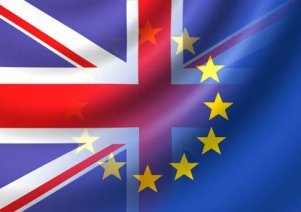Today, Theresa May announced that she was prohibiting the extradition of Gary McKinnon to the United States on computer hacking charges. She did this via an announcement to the House of Commons which can be watched on www.parliamentlive.tv. I come to the conclusion that she’s a class act. I also watched her yesterday dealing with Parliamentary Questions on the #snooperscharter. PQs are difficult for the opposition, the government always gets the last word, and so with only one intervention it can be desperately hard to get one’s point across; it’s too easy for a Minister to ignore the question and answer one they want too. Today she announced, in an hour long question and answer session that
- she was exercising her right of prerogative to stop the McKinnon extradition
- she was going to introduce new procedures to ensure that British Citizens get to be prosecuted in the UK for crimes committed in the UK
- she was not planning to demand that the US, (or other extradition counterparties) present their evidence to UK courts
- she would seek to end politician’s role in extradition process
Her decision is taken because on review of the evidence she believes that McKinnon’s Human Rights would be breached if he were to be extradited to the US. She has received medical evidence that he was a significant suicide risk and his European Convention , Article 3 rights, the right to life would be at risk.
I am deeply unsure that this makes good or fair law.
She has abdicated the fundamental tests of extradition, that it must be a serious crime in both states to the courts; the treaty prohibits that British Courts from evaluating the evidence to determine if there is a British legal case to answer, the Home Secretary can now only use prerogative to defend a suspects Human Rights, and she wants to give that away.
Despite this most MPs on both sides of the house seemed pleased, although some Labour MPs raise the issue of Babar Ahamd and Syed Talha Ahsan who may have both benefited from forum bars since their alleged illegal acts cannot have taken place in the USA; they have never been there. Despite this, their families expressed their solidarity with McKinnon and his family. Only Alan Johnson MP raised the issue that when the medical evidence was reviewed in an open court, it rejected the arguments that McKinnon was too ill to face trial, or punishment, in the USA.
Keith Vaz made a good argument that the British Courts should evaluate if there is sufficient evidence that there is a case to answer, and that politicians should keep the prerogative power to ensure that extraordinary clemency in the case of McKinnon or extraordinary vengence in the case of Pinochet can remain part of the system. (Although the last case didn’t work so well, did it; but that’s because Jack Straw left it to the judges.)
Yvette Cooper made a very balanced speech, welcoming the ruling, offering parliamentary help in sensible reform of the extradition laws and asking what precedents this created both for international pursuit of computer criminals and for others currently under threat of extradition, including Richard O’Dwyer. No answers were forth coming on the latter two questions.
For more on the Mckinnon case, read this at the Guardian and this, from David Allen Green in the New Statesman, who documents the changing arguments of the Mckinnon defence.
I wish Richard O and Julia the best, but I don’t think the law reform proposed will be quick enough, although McKinnon dragged it out for 10 years, so there’s still hope, but I think May closed doors for Richard today.
ooOOOoo
Does anyone know if Richard can have the extradition hearing reviewed; I still stand to the view that what he did isn’t a crime in the UK and so he shouldn’t have to face trial in the USA.
The Director of Public Prosecutions must now decide if there is a case to answer in the UK and if it’s in the public interest to prosecute. Do we then need to see if anyone will seek to bring a private prosecution if they decide not. …
 So earlier today,
So earlier today,